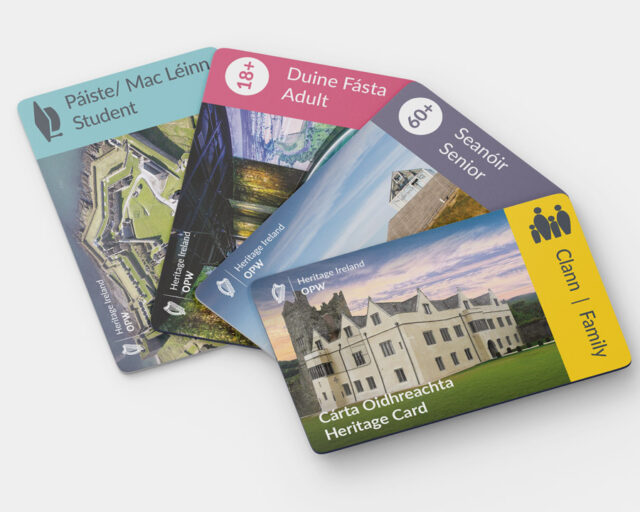Dia duit, or should that be Dia dhuit? The former is correct when writing and the latter when speaking. Another one of the many little quirks that adds to the richness of the Irish language (Saibhreas na Teanga).
Hello, is mise Liam and I am delighted to be the new Irish language officer with the Office of Public Works. I joined the civil service relatively late in life but was very fortunate to land at the ‘Board’. I started as an Executive Officer with National Historic Properties before joining the Conservation Architects as a Higher Executive Officer. I then saw the advert for Irish language officer, applied, was successful and now I work with the Policy Unit. Each role has suited me greatly because I have a keen interest in history and culture.
I am also a late-comer to the Irish language. When young, there were no Gaelscoileanna in my locality. There was no Irish at home but my parents were always sympathetic towards the language. I was twice packed off to the Gaeltacht and did not particularly enjoy the experience, or so I thought. I achieved a Grade C in ordinary Irish at Leaving Cert. I then became an apprentice and drifted from the language but something always kept me interested. I was in my mid-30s when the flame rekindled. I started attending conversation groups, listening to the radio and reading voraciously. I developed a network of like-minded friends and through that improved my fluency.
My main role is the promotion of An Ghaeilge within the organisation and advising on compliance with the Official
Languages Act 2003 and 2021. There have been recent developments in this area that mean that we in the OPW
have increased legal responsibilities when it comes to Irish and its role in our work. My role is to guide and assist staff to ensure that the Office meets its obligations.
In addition to the legal compliance aspect of my work, it’s also important for me to promote the recreational activities available in Irish. This page Irish Language Tour at Dublin Castle.
Some initiatives that are proving successful are:–‘Lón le Gaeilge’– going from strength to strength.A monthly on-line get-together in a relaxed environment where people can practice their cúpla focal in a supportive environment.
– Irish language tours – In addition to OPW sites in Gaeltacht areas, Irish language tours are now available at many heritage sites including Rock of Cashel, Dublin Castle, Casino Marino, Kilmainham Gaol, Pearse Museum, Royal Hospital Kilmainham,Custom House Visitor Centre, Kilkenny Castle, Emo Court and others.
– Staff Irish language courses – The numbers of staff availing of Onelearning Irish courses is increasing each year. These are of great benefit to team members and are completely free of charge.
– OPW representation – We introduced a popular Seastán Gaeilge (Irish stand) at this year’s Ploughing Championships, we were represented at An tOireachtas in Killarney (the annual language and culture event) and we are now advising on plans for the development of a Gaeltacht Quarter in Dublin’s south city centre. OPW is actively working with many of the Irish language promotion bodies to help raise the profile of the Irish language.
The Official Languages Act was introduced in 2003 and it gave legal status to the Irish language. The primary objective of the Act was to ensure improved provision of public services through the Irish language. The Act was strengthened when amended in 2021. As a government agency, the OPW must comply with all requirements of the Act. Oifig an Choimisinéara Teanga (OCT) is the Language Commissioner’s Office, an independent statutory office operating as an ombudsman service and as a complianceagency. I am the contact person between the OPW and OCT and I am pleased to say that we have established a good working relationship with the team at the Commissioner’s office.
If a breach of the Act is reported, OCT will open a case and contact us. I will liaise with them to remedy the breach and rectify the problem. In order to do this I require the cooperation of the OPW staff. I am absolutely delighted with the co-operation and buy-in that I have witnessed so far. Thank you all! The main areas of complaint relate to non-compliantsignage, lack of Irish language information leaflets/publications and Irish language communications answered in English. These
are all easily rectified and once a breach is identified we all learn from it. The OPW is making great progress in meeting our requirements under the Act.
In summary, tá a lán déanta ach tá níos mó le deanamh ( a lot is done but there is more to do). If I can be of assistance to anyone please do not hesitate to make contact. The easiest way is via gaeilge@opw.ie Tá mé ag súil go mór le cloisint uait. Ádh mór!


